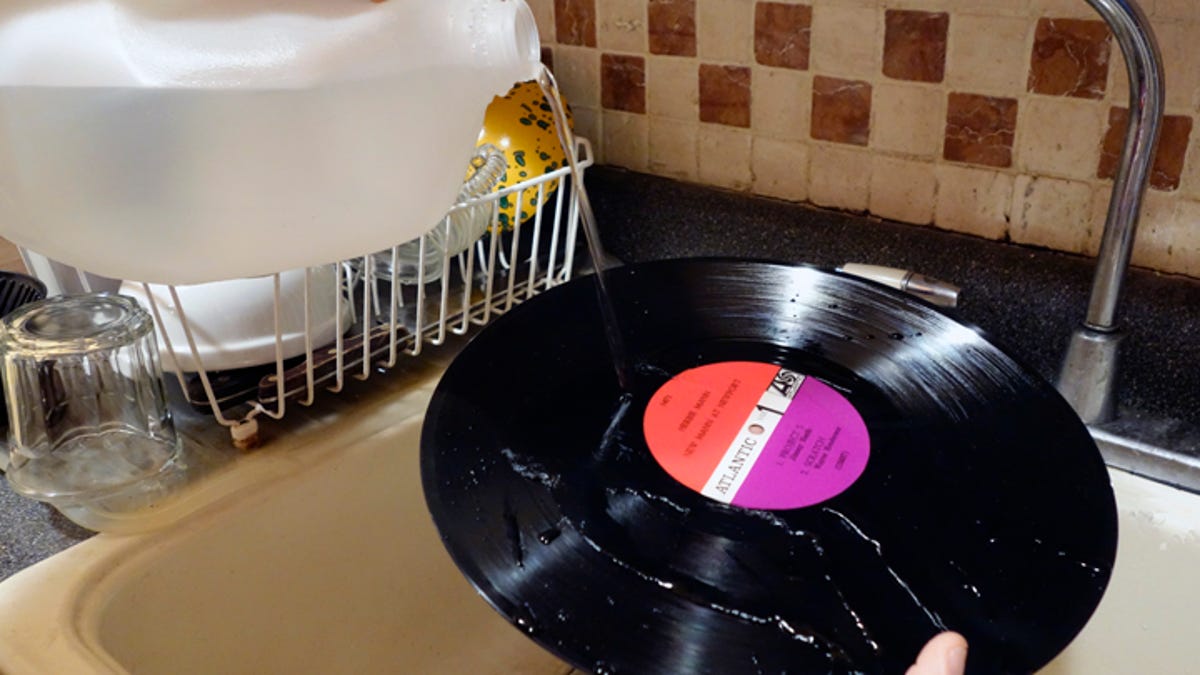 Why You Can Trust CNET
Why You Can Trust CNET How to make your vinyl records sound better for almost nothing
Cleaning your old LPs with plain water can improve sound quality significantly.

Dousing a record with water.
If you own a turntable, or got one for the holidays, then you want to be able to keep your record collection in the best possible condition. For instance, the wiggles and undulations of an LP record groove are incredibly tiny, so it doesn't take much dust, dirt, or crud lurking down there to mess up the sound. That's why some vinyl-philes buy record cleaning machines to literally suck the debris out of the grooves. Those machines sell for hundreds or even thousands of dollars, but there's a cheaper way to come clean. Sloshing a bit of distilled water over the grooves can quiet your old LPs.
To get started I took off my ring and washed my hands. Next, I bathed a few noisy records with distilled water in my kitchen sink. I didn't soak them, I just liberally doused a side of the LP with distilled water, then gently ran my fingers over the entire grooved surface (or you may prefer a clean, lint-free cloth). Then I repeated the dousing and gentle finger "scrubbing" on the other side of the record. More rinsing followed, than I held the record with my two hands and shook it for 30 seconds to get most of the water off. After that I leaned the LP up against a wall on my kitchen counter to finish drying.
An hour later I played the records, and they were noticeably quieter than they were before bathing. Obviously, cleaning a record won't repair gouges, scratches, or nicks, but water can reduce the amount of crud in the grooves, the stuff that was the source of much of the noise.
Tiny grooves can harbor crud.
If you buy lots of old records (or find 'em in the street -- I've discovered a few real gems that way), a bit of cleaning is a great idea, but I wouldn't recommend immediately trying this on your most valuable records. I didn't have any trouble with any of the records I've cleaned over the years, but there's a small chance the label might wrinkle or even fall off. Record cleaning poses some risk, so take your time and proceed with caution. If the records are really grimy or have grease embedded in the grooves I doubt distilled water will make much difference. Adding a few drops of dishwashing liquid with no fragrances, phosphates, or coloring agents to a cup of water might dislodge some of the filth. Circle the grooves with a soft, wide paintbrush to spread the solution for a minute per record side. Rinse with lots of distilled water.
Employing a dry record cleaning brush just before playing an LP can also help sweep away surface dust. Do you have a record-cleaning machine or your own home-brew LP cleaning tips? Share your experiences in the comments section.

